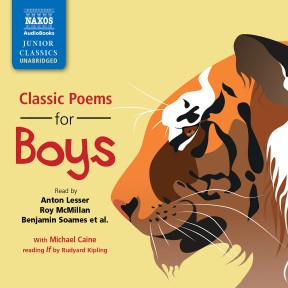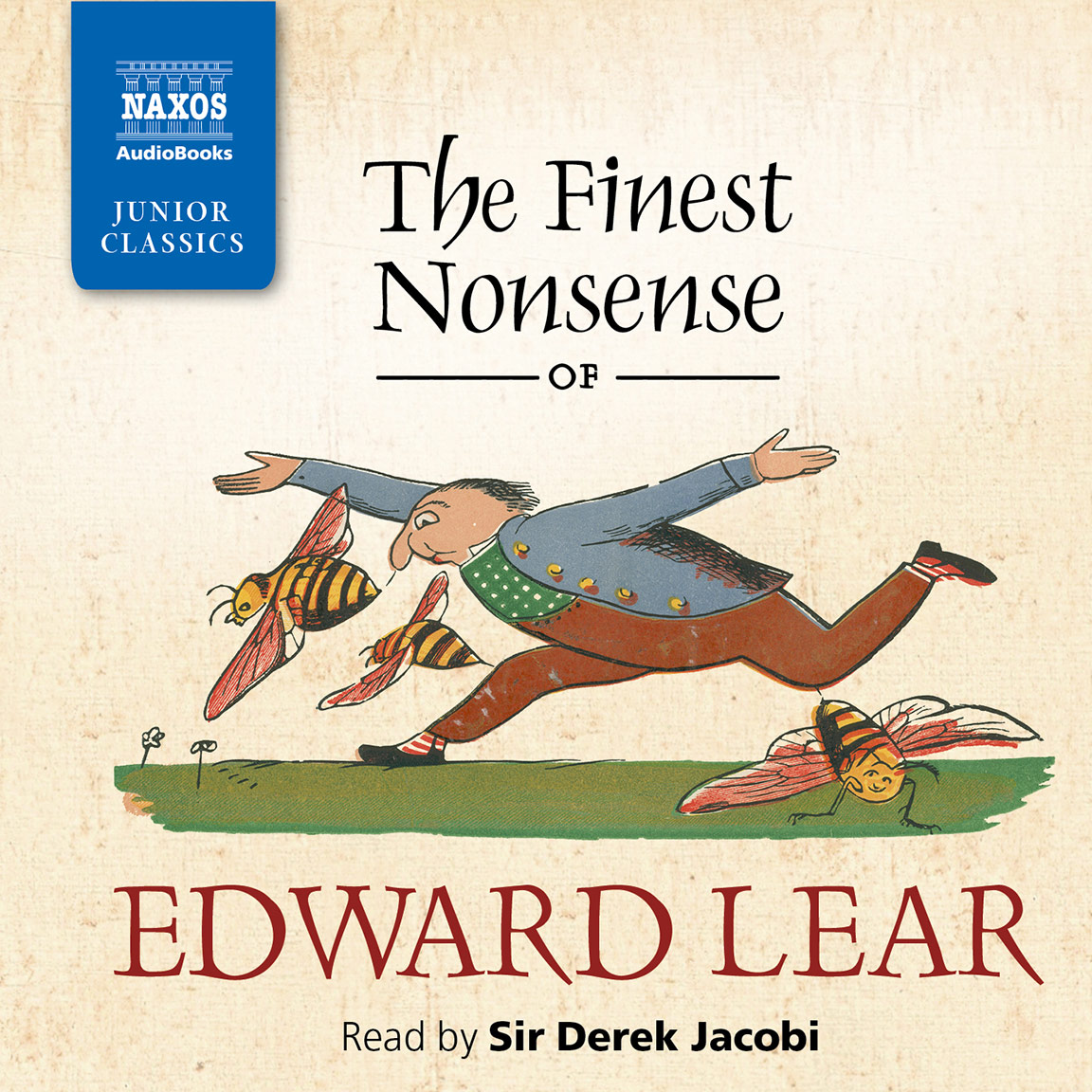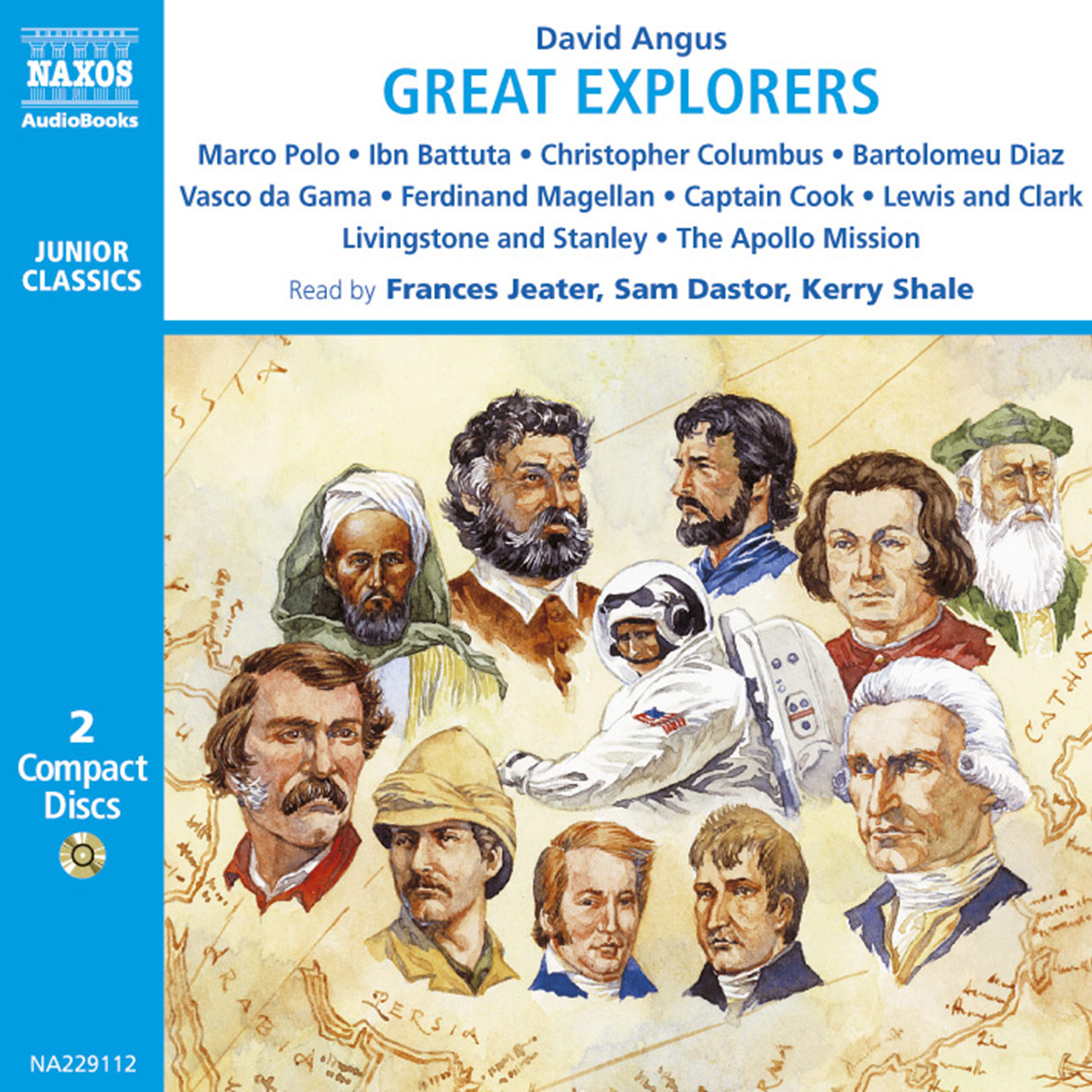
Audio Sample
Various
Classic Poems for Boys
Read by Benjamin Soames, Roy McMillan, Rachel Bavidge, Jasper Britton, Robert Glenister, Anton Lesser & Benjamin Zephaniah
unabridged
Classic Poems for Boys comprises a delightfully varied set of poems for 5-10-year olds. From rousing favourites like Felicia Dorothea Hemans’s Casabianca and John Keats’s A Song About Myself, to dreamy, thoughtful poems by Rudyard Kipling and Henry Wadsworth Longfellow, this is a collection to be treasured.
-
Running Time: 1 h 05 m
More product details
Digital ISBN: 978-1-84379-619-0 Cat. no.: NA0102 Download size: 16 MB Edited by: Sarah Butcher BISAC: JUV070000 Released: July 2012 -
Listen to this title at Audible.com↗Listen to this title at the Naxos Spoken Word Library↗
Due to copyright, this title is not currently available in your region.
You May Also Enjoy
Included in this title
- Felicia Dorothea Hemans
- Casabianca
- Rudyard Kipling
- If
- Henry Wadsworth Longfellow
- The Arrow and the Song
- William Makepeace Thackeray
- At the Zoo
- Hilaire Belloc
- The Vulture
- Lewis Carroll
- The Walrus and the Carpenter
- Lewis Carroll
- How Doth the Little Crocodile
- Benjamin Zephaniah
- Talking Turkeys
- G.K. Chesterton
- The Donkey
- William Wordsworth
- The Village Blacksmith
- Edward Lear
- There Was an Old Man with a Beard
- Lewis Carroll
- You are Old Father William
- Rudyard Kipling
- A Smuggler’s Song
- William Blake
- The Tyger
- Percy Bysshe Shelley
- Ozymandias
- Lord Byron
- The Destruction of Sennacherib
- Sir Walter Scott
- Lochinvar
- Rudyard Kipling
- Gunga Din
- Robert Browning
- The Pied Piper of Hamelin
- Alfred Lord Tennyson
- The Charge of the Light Brigade
- Rudyard Kipling
- The Ballad of East and West
- W.S. Gilbert
- A Nightmare
- John Keats
- A Song About Myself
Reviews
All the narrators in this production excel, but Michael Caine’s rendering of Kipling’s If and Benjamin Zephaniah’s delivery of his own Talking Turkeys are standouts. A century or more ago, this was the home entertainment system: young people would memorise popular poems and recite them after dinner. Some of the poetry here is light entertainment (W.S. Gilbert’s and Lewis Carroll’s, for example), and some, like If, is moral exhortation. There are also tales of adventure (Casabianca and The Tale of East and West are fine examples) that carry moral lessons. Some of the morals may be dated, but the poems deserve to be experienced as they were intended – read aloud by expert readers.
D.M.H., AudioFile
Booklet Notes
When you hear a poem that you like, it’s a fantastic feeling. Like a favourite story, it can inspire you, transport you to far away lands and make you laugh. It can be short or long, straightforward or nonsensical, rhyming or unstructured, but the most important thing is that it affects you in some way, that you remember it. That’s the sign of great writing!
Poetry is a form of art, a very old form of art, in fact. Many people believe that the first poems were spoken aloud (‘recited’) or sung. They were used as parts of religious ceremonies, to bring luck, and to keep a record of important historical events.
On this recording is a selection of classic poems, all of which are still enjoyed today. Hopefully you’ll see why! From A Smuggler’s Song to A Song About Myself to The Vulture, there are battles, escapes and adventures in foreign lands to immerse yourself in.
It’s fun to imagine these poets reading their own words aloud as they wrote, trying to make sure they used language that would entertain, make you sad, surprised – any feeling you can think of. When the right words are used in the right combination, the effects can be magical.
You might want to compare the rhythms of the poems in this collection: whether there is a steady beat to the poem or a less obvious pattern made up of soft and strong beats that might change from verse to verse. We won’t detail the technical terms here, and you don’t need to know them to enjoy the poetry, but it is worth appreciating that the way a good poem has been crafted is the key to its effectiveness. It’s all about how it sounds to you, whether the pace feels right and whether it suits the story.
Some of the poems in this collection are based on real events. Felicia Dorothea Hemans (1793–1835) wrote a poem called Casabianca (you might know it as ‘The boy stood on the burning deck’: this is the famous first line). This was written in
memory of a French naval officer, whose son died during the Battle of the Nile between the French and the English in 1798. This is the second verse:
Yet beautiful and bright he stood,
As born to rule the storm;
A creature of heroic blood,
A proud, though childlike form.
This is a poem all about a son’s loyalty to his father. As he stands on the ‘burning deck’, people who are dying surround him, including his father. However, he still stands tall, waiting for ‘his father’s word’, his instructions. It’s an image as heroic as it is sad. It’s also a great example of poetry’s power to make you feel, and to make you remember.
There’s also The Charge of the Light Brigade, by Alfred, Lord Tennyson (1809–1892), which is about the British cavalry fighting against Russians in the Crimean War (1853–1856). It focuses on the tremendous courage of the horsemen:
Cannon to right of them,
Cannon to left of them,
Cannon in front of them
Volley’d and thunder’d;
Storm’d at with shot and shell,
Boldly they rode and well,
Into the jaws of Death,
Into the mouth of Hell
Rode the six hundred.
The alliteration (use of the same letters or sounds at the beginning of words close together) in line five (‘Storm’d, ‘shot’, ‘shell’) and repetition of ‘Cannon’ in the first three lines emphasises how much the cavalry were in terrible danger, and the sinister image of a personified Death, complete with ‘jaws’, continues this idea. This isn’t a poem for the faint-hearted.
However, not all of the poems you’ll hear in this recording are epic and bloody. Lewis Carroll (1832–1898) was a nineteenth-century poet who wrote nonsense verse, among other things. His writing is often witty and funny – you can see this in How Doth the Little Crocodile, which is actually a poem that deliberately imitates, for comic effect, the solemn poem Against Idleness and Mischief, by a poet and preacher of the previous century named Isaac Watts (1674–1748). Instead of encouraging hard work, How Doth the Little Crocodile is all about being sneaky: the crocodile ‘welcomes little fishes in,/With gently smiling jaws!’.
On the subject of being sneaky, A Song About Myself by John Keats (1795–1821) is about a naughty boy who runs away from home and has scores of adventures:
He ran
To the mountains
And fountains
And ghostes
And Postes
And witches
And ditches
And wrote
In his coat
When the weather
Was cool,
Fear of gout,
And without
When the weather
Was warm –
The pace of the poem is very fast, enabled by its structure: the majority of lines in each of the three verses consist only of two words. This gives us the sense that our mischievous hero is moving speedily, jumping from adventure to adventure. To pack a pen, run away to the mountains and do nothing but ‘scribble poetry’ sounds quite tempting!
There are poems out there to suit any mood, whether you want to feel stirred into action, scared silly, cheerful, or whether you’d simply like a break from the everyday and a peek into new, fantastic worlds.
Poets use all kinds of writing techniques to make sure their readers are affected by the words, such as those mentioned above: repetition, line-length and personification. Just as important as the sounds of the words are the images they conjure up: the image of a greedy crocodile, a boy on a burning ship, a secret mountain hiding-place. These stay with us, to be remembered whenever we might feel like it. That is why poetry read aloud can be particularly effective: a good narrator brings the words to life, and can inspire you to consider the poem anew.
Notes by Frances Taffinder




